ོ࿐˖✶⊹₊𖦹 W.3 DISSERTATION & CNY WEEK 𖦹₊⊹✶ ࣪˖࿐ོ
Continuation of Digital Dementia Tests
Continued to brainstorm on other engaging ways to test digital dementia on myself and target audiences.
I feel that it is getting challenging as the topic is quite dry and I am not sure if I am going towards the right direction by shifting the focus from sound trigger memory to digital dementia.
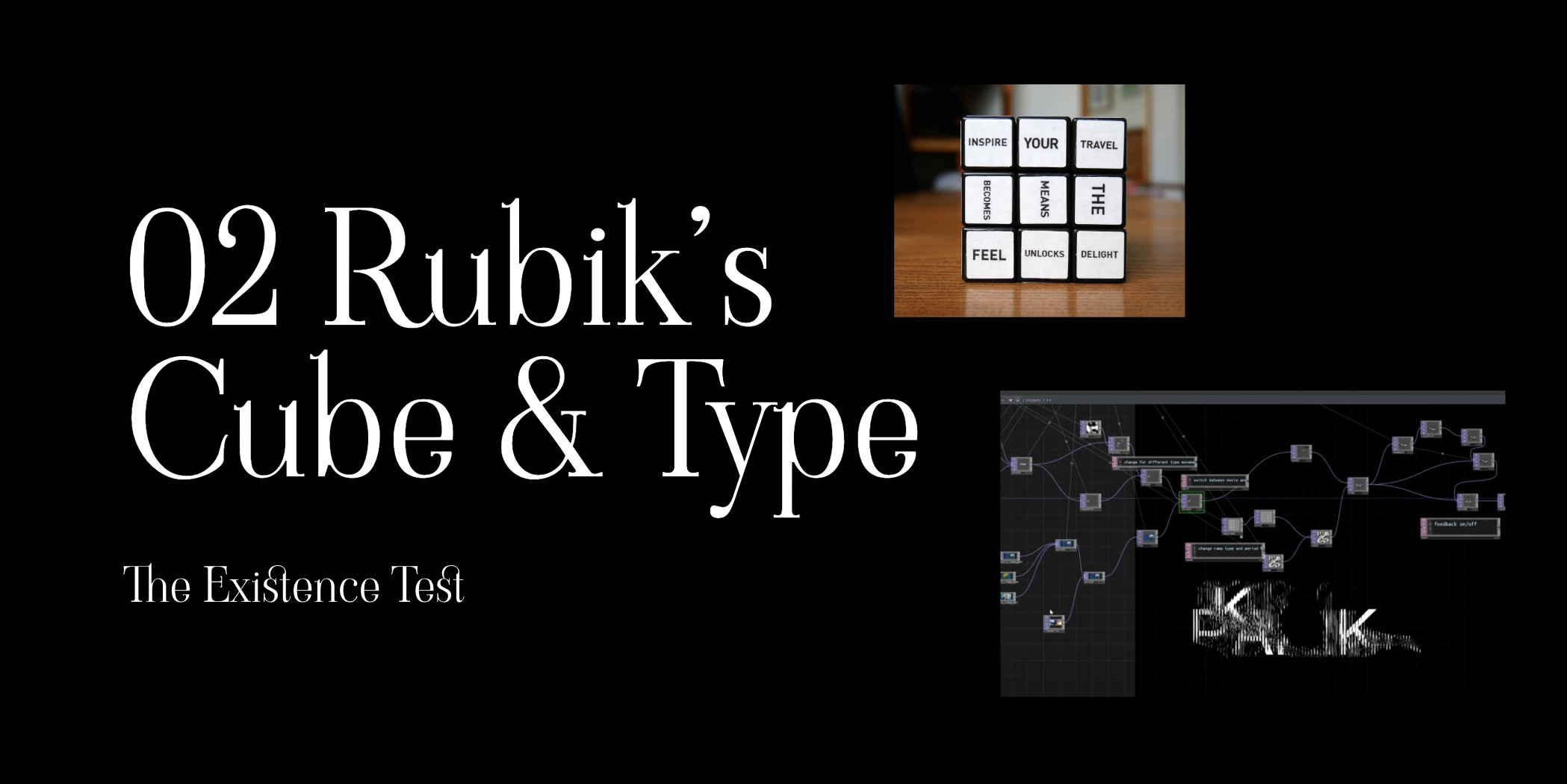
Sonic memory (audio-visual)
typography featuring words about the signs of digital dementia with displacement effect
DIGITAL DEMENTIA RESEARCH
The importance to create awareness
on digital dementia:
- ✶ risk of developing early onset dementia
- ✶ 43% singaporean respondents spend more than 6 hours a day on the internet
- ✶ "In the past, most people remembered phone numbers, events, meetings and other important information. That memory has since been replaced by smartphone data storage, reliance on internet technology causes us to use our brains differently."
I came across a video on the internet that talks about digital dementia and how it is a growing concern in today's society. The video discusses how people are becoming increasingly reliant on technology to remember things for them compared to people in the past, which can lead to a decline in cognitive function and memory retention. The video also highlights the importance of utilising technology in a balanced way, and not allowing it to take over our lives.
I found this video to be very informative and thought-provoking, and it has inspired me to continue my research on this topic.
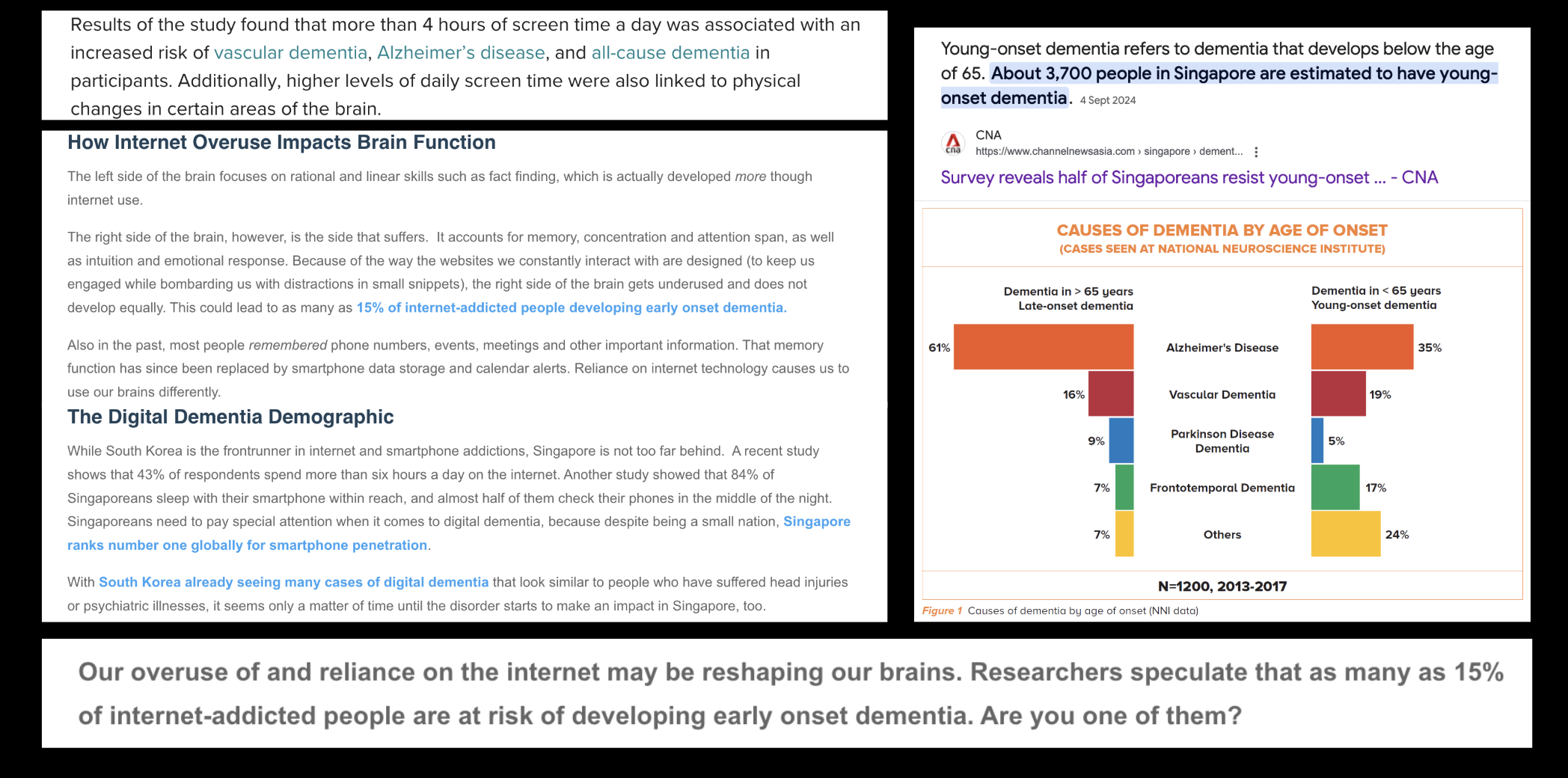
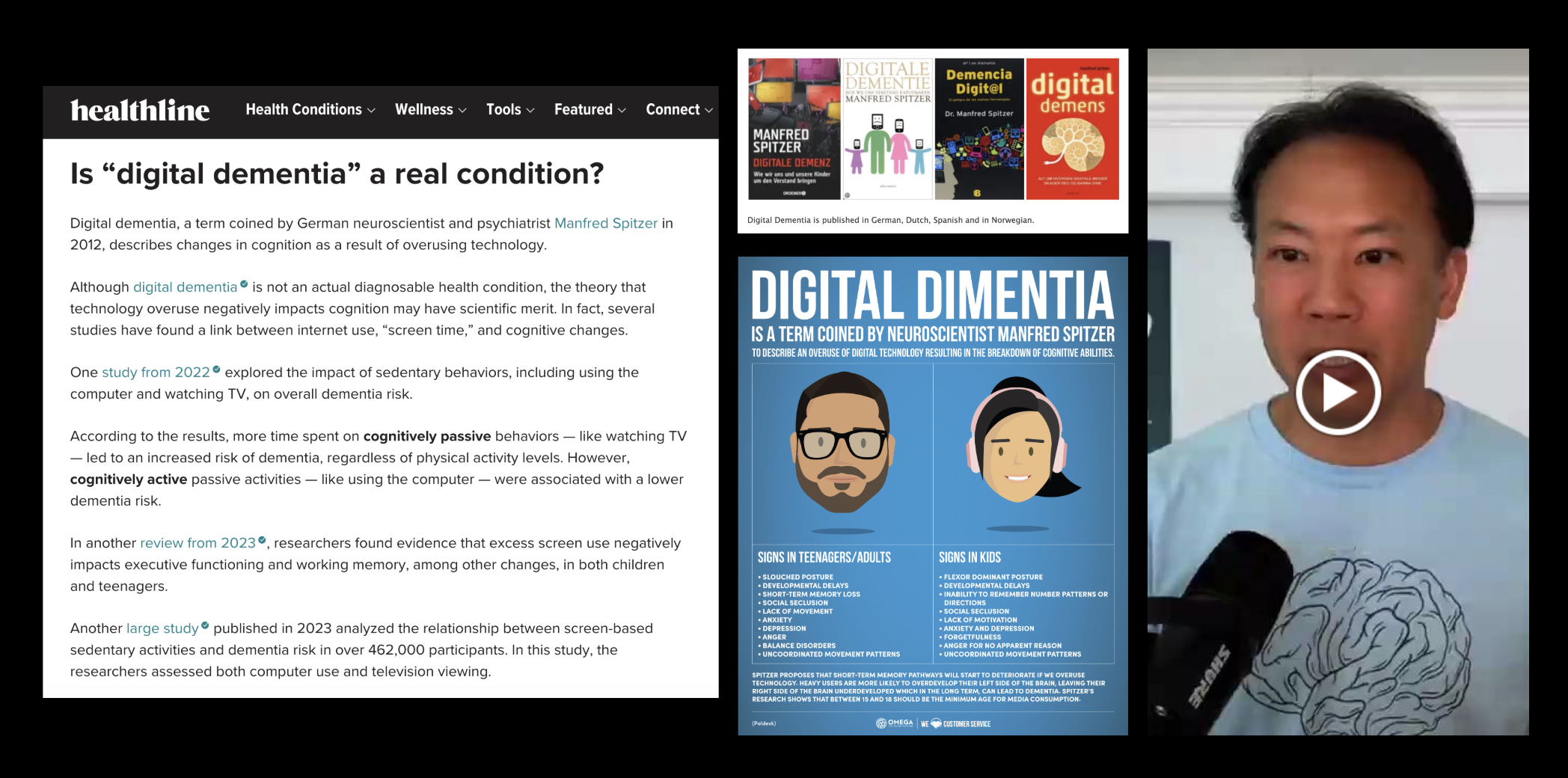
research on whether digital dementia is an actual medical term 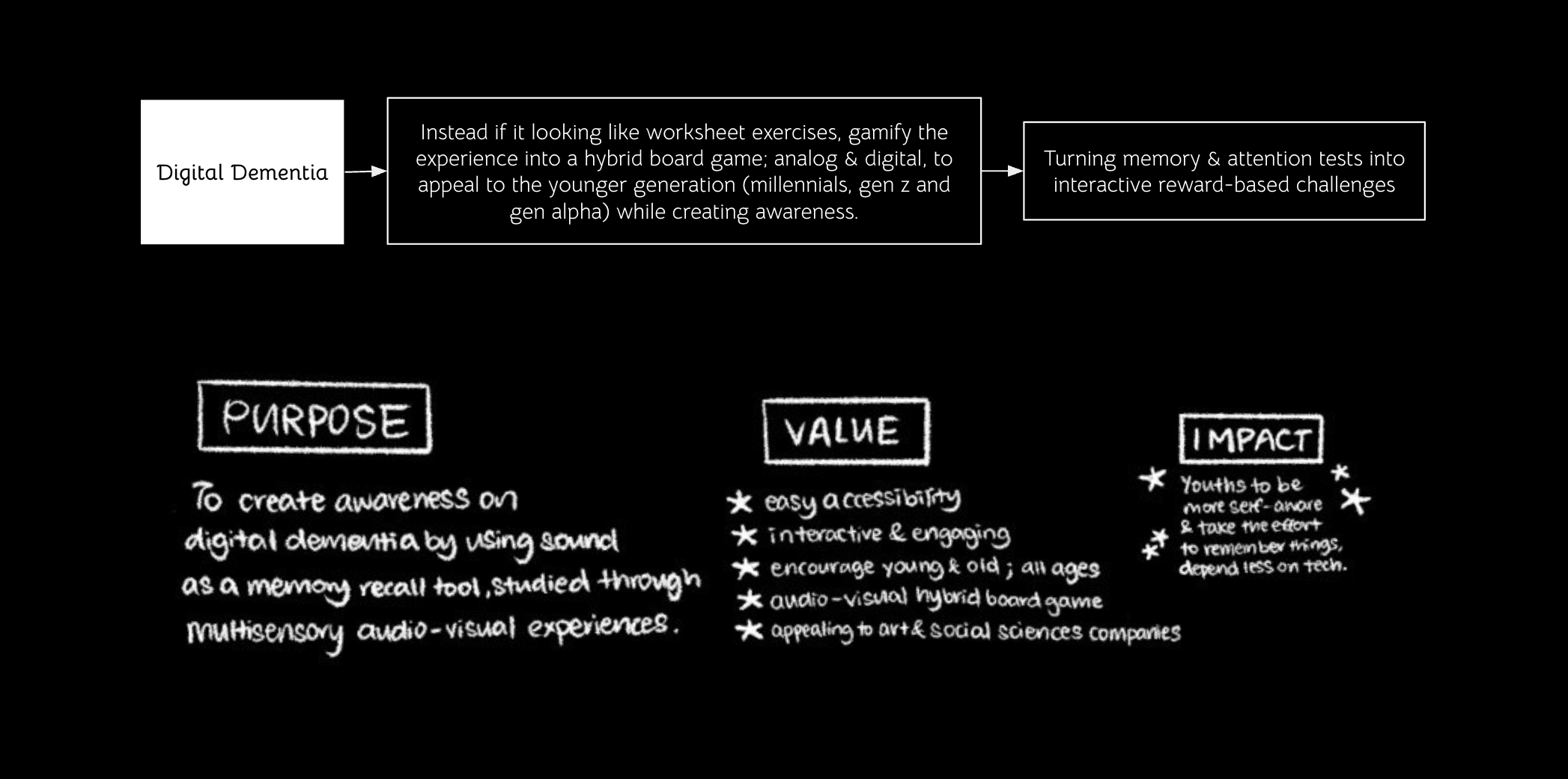
purpose, value and impact of spreading awareness on digital dementia
FINDING — PURPOSE VALUE AND IMPACT
During the research, I found out that digital dementia is not an actual medical term. It is a term coined by the media to describe the phenomenon of people becoming overly reliant on technology and losing their ability to remember things without it. However, I believe that it is still important to raise awareness about this issue, as it can have a significant impact on our lives. By understanding the potential consequences of digital dementia, we can take steps to mitigate its effects and ensure that we are not overly reliant on technology.
Additionally, I believe that it is important to educate others about this issue, as it can help to create a more informed society. By raising awareness about digital dementia to the youths, we can help to ensure that people are aware of the potential consequences of their actions and are able to make more informed decisions about their technology use. However, the problem now is how to create awareness on digital dementia in a fun and engaging way. I am thinking of creating a game that can be played by people of all ages, which will help to raise awareness about this issue.
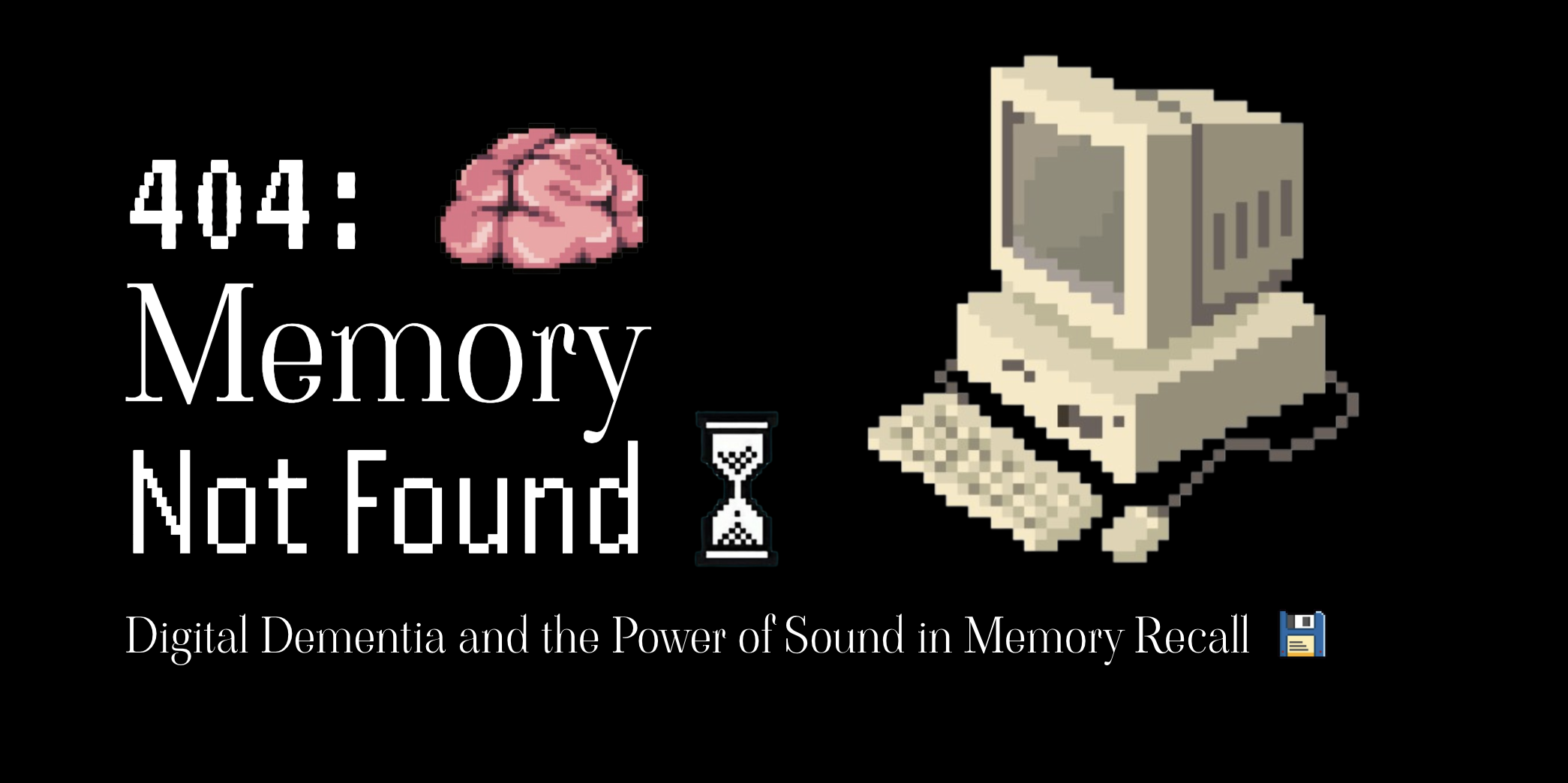
gamifying the experience of digital dementia awareness 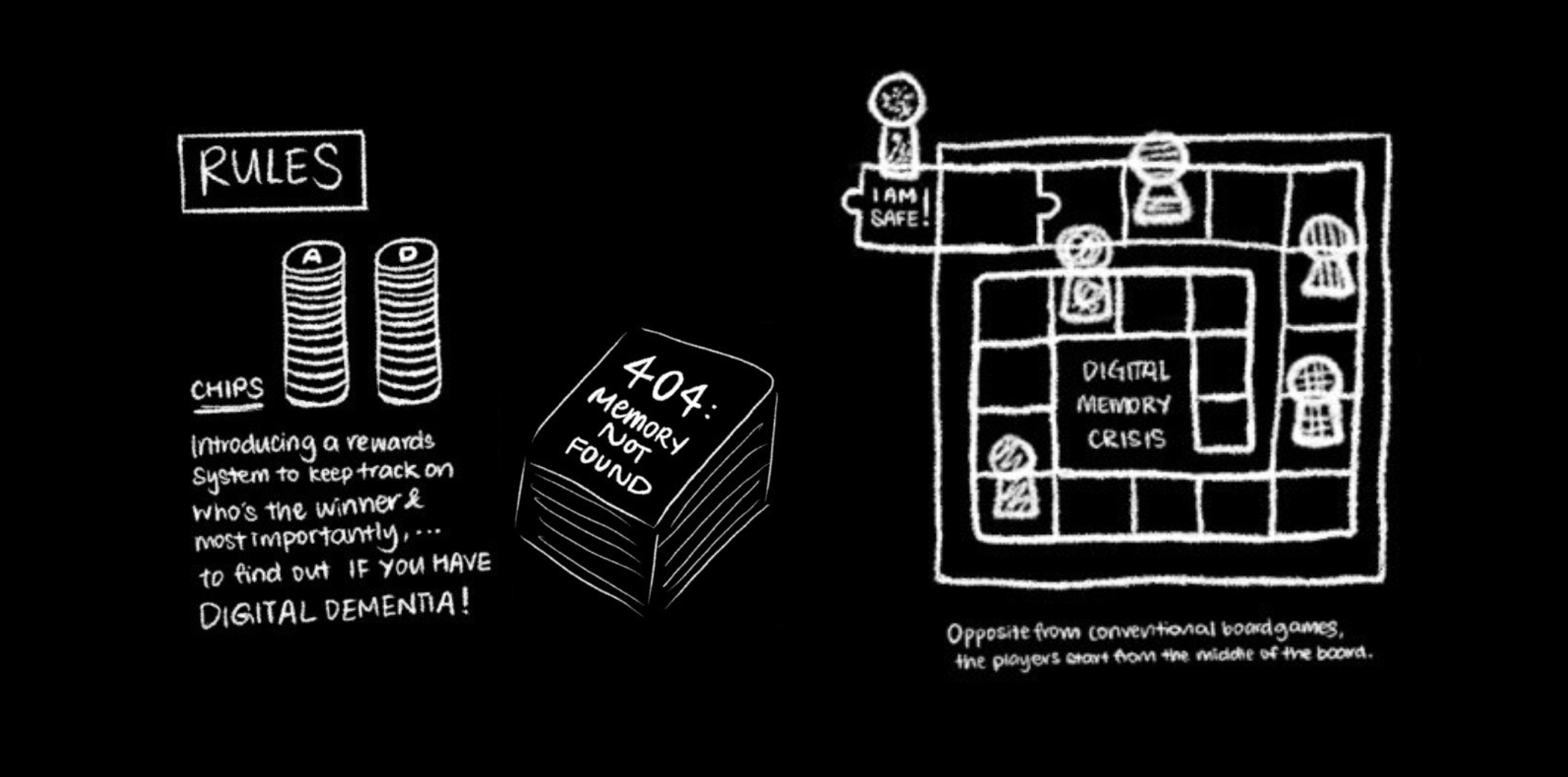
an analog and digital boardgame concept
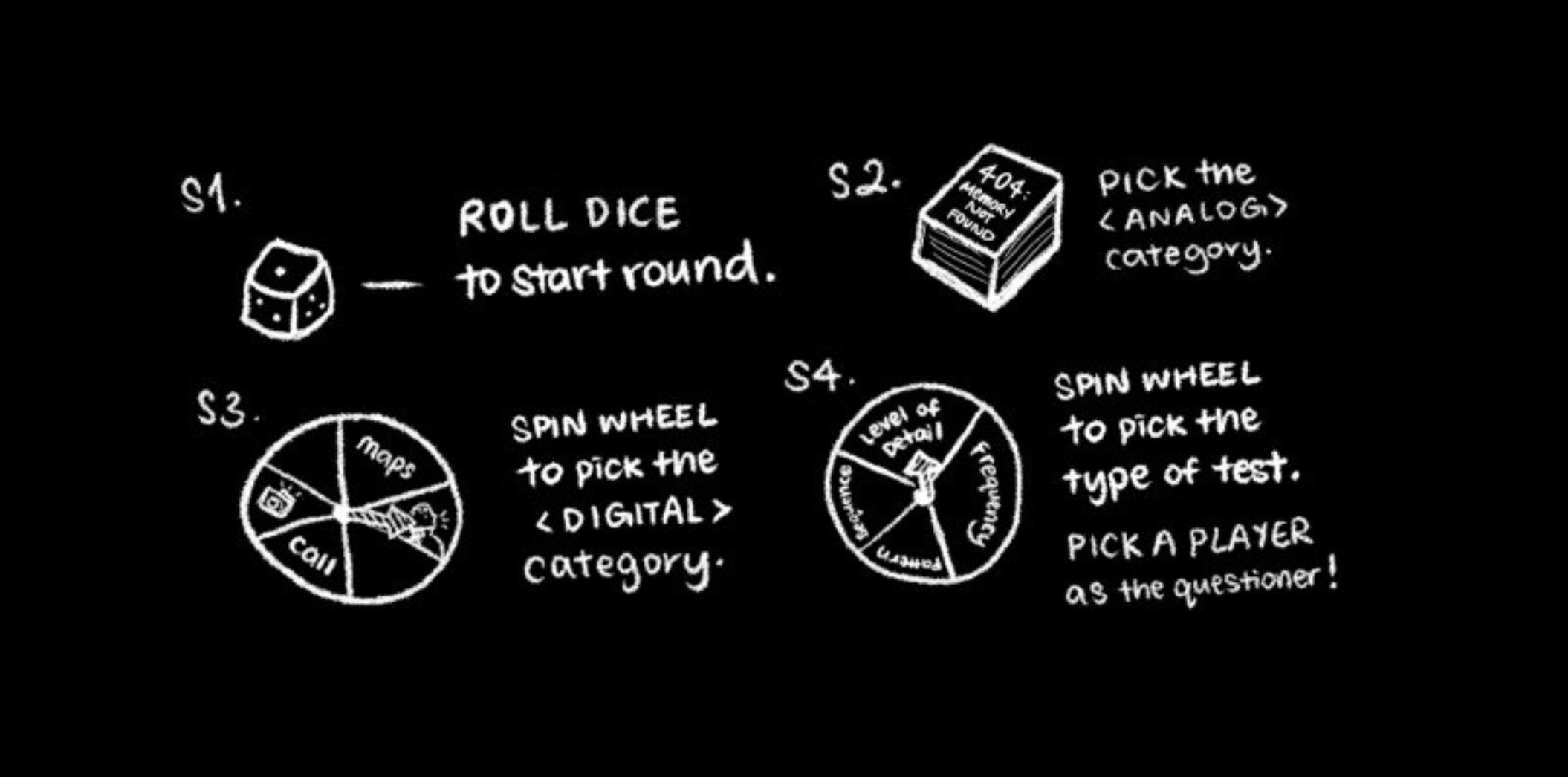
steps and rules on how to play 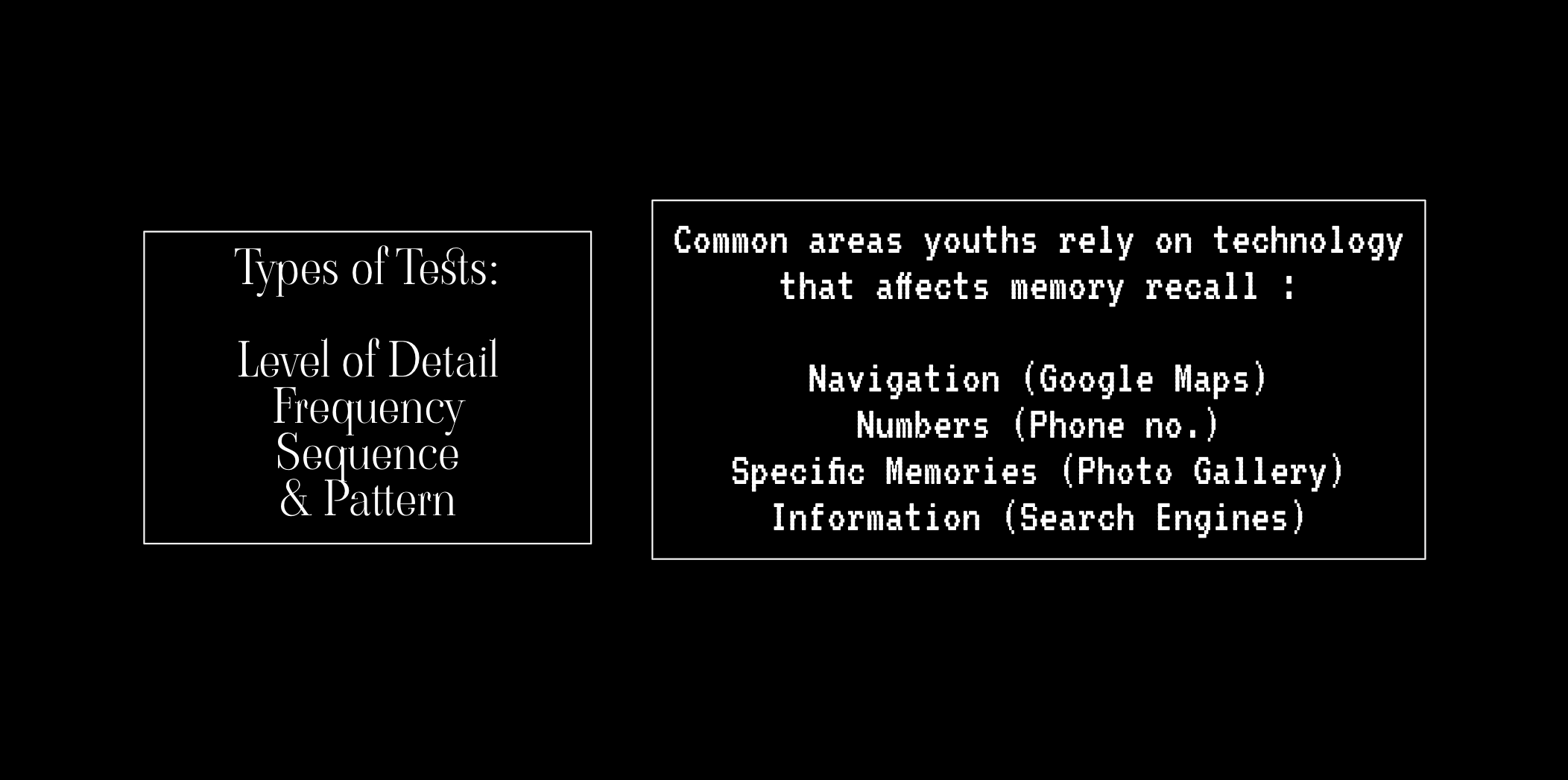
examples on the types of tests that could be on the game cards